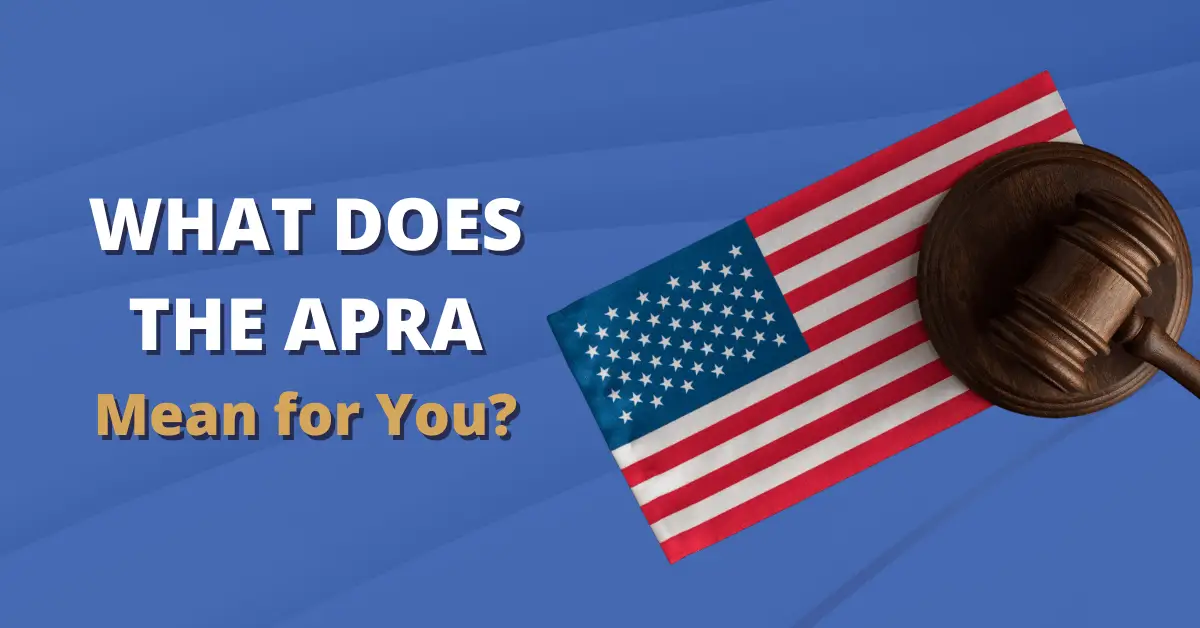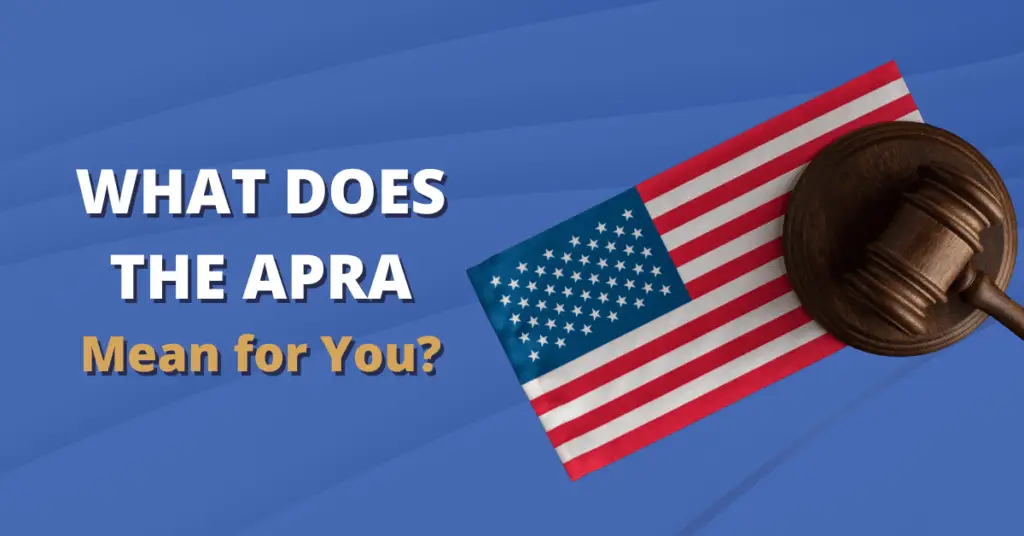What Does the APRA Mean for You?


In the absence of a single federal privacy law, multiple states have been passing or proposing their own. This resulted in a mosaic of regulations that differ just enough from state to state to be confusing. But the past couple of years have seen a shift at the federal level as lawmakers consider finally passing a sweeping privacy law. The most recent example of this is the American Privacy Rights Act (APRA).
What Exactly is the American Privacy Rights Act?
Introduced by a bipartisan group of US House Representatives and Senators, the APRA is the most recent attempt to pass a federal privacy law. The act is designed to establish a unified federal privacy standard and address gaps left by state privacy laws (or lack thereof).
If passed, the act could reduce operational burdens for businesses by giving them a single set of regulations to follow instead of many. It could also enhance privacy protections for consumers by improving upon existing state laws and adding requirements to states without privacy laws.
Key Provisions Of the APRA & Their Impact on Marketing
The act’s primary focus is giving individuals greater control over their personal data. This includes allowing consumers to manage, correct, delete, or transfer their data, similar to DSAR provisions in the GDPR. Businesses would also need to adhere to stricter data collection practices. Most notably, the APRA mandates data minimization and easily accessible opt-out choices for consumers. The legislation also emphasizes secure handling of acquired data. Businesses must obtain customer consent before sharing sensitive information with third parties, especially information that could be used for discriminatory purposes.
Furthermore, the Act emphasizes the importance of transparency and consumer consent. It requires businesses to clearly disclose their data collection and processing activities and obtain explicit consent from consumers before using their data for marketing or other purposes. This shift underscores the need for marketing strategies that prioritize consumer privacy and consent, moving away from the more aggressive data-driven tactics that have been prevalent.
The act also acknowledges the risks and challenges posed by technologies like artificial intelligence, including issues related to deepfakes and other AI-generated content that could threaten personal security or propagate misinformation. To address these emerging threats, the legislation underlines the importance of developing technologies that can detect AI-generated content and securing cooperation at an international level to combat these challenges effectively.

Implications for Marketing Innovation & Strategy
While the APRA aims to tighten privacy protections, it also seeks to balance these with the needs of businesses to innovate and grow. For marketers, this means that while they must adapt to stricter privacy standards, there remains room for innovation and the use of data in ways that are compliant and respectful of consumer rights.
Most notably, the APRA emphasizes the importance of privacy by design. This encourages marketing teams to consider privacy requirements and secure data handling from the very start. With privacy baked into the system, compliance becomes much simpler—but it also becomes more than just a legal obligation. Marketers can and should use the APRA as a chance to showcase their privacy efforts and improve both customer trust and brand reputation.
Looking Ahead
As the APRA continues to move through the legislative process, its final form and the timing of its enactment remain uncertain. But the conversation around federal privacy legislation continues. For businesses and privacy advocates alike, the American Privacy Rights Act represents a step toward a more predictable and secure data privacy landscape in the United States. We can likely expect a comprehensive federal privacy law in the not-too-distant future.
For marketing professionals, staying informed and prepared for these changes is crucial. The shift towards a more standardized federal privacy framework represents both a challenge and an opportunity to redefine how consumer data is collected, used, and protected in the digital age. As these legislative developments unfold, marketing professionals must continue to monitor these changes closely, ensuring their practices align with both the letter and spirit of the law, thus safeguarding consumer trust and sustaining business growth.
As new privacy laws pass and existing ones are updated, don’t let your company be left behind. Keep up with each new change with our flagship privacy compliance software, 4Comply, designed for marketers by marketers. Contact us for a free demo today.





